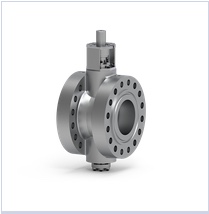24-05-2023
Upgrading older process plant valves to the latest technology translates into energy savings and long-term reliability
We are often asked why we recommend upgrading older valves to the latest technology. We will examine how technological improvements deliver measurable results in terms of cost savings, sustainability and long-term reliability.
For any plant relying on equipment that has been in operation well over 15 years, planning targeted upgrades is a logical next step. Driven by recent technological improvements, comprehensive valve lifecycle and digitalization plans supported by the original equipment manufacturers (OEM) can generate 6-figure annual euro energy savings, reduce total carbon emissions, minimize process fluid leaks to the atmosphere, address obsolescence risks, harmonize your installed base to reduce inventory needs and, ultimately, secure long-term plant availability.
Efficiency means sustainability
In a world where efficiency is a key driver for any process, business or industry, the valve technology you choose can make a considerable difference.
The thousands of valves that control and safeguard process plant operations consume a sizeable amount of compressed air, an industrial utility that requires high amounts of energy and has a direct impact on electricity consumption and CO2 emissions.
Valmet’s Neles™ NDX 2.0 valve positioner consumes 80% to 90% less air than conventional controllers. This translates into considerable cost savings and a proportional reduction in CO2 emissions.
Current energy price levels mean that the payback time for such investments is typically short. Moreover, accurate flow control solutions can also help optimize raw material consumption minimize process waste. The monetary benefits of upgrades can often be seen across the process.
Local authorities may subsidize projects aimed reducing industrial carbon emissions. In Germany, for example, the government will fund such projects by up to 30%.
Another sustainability challenge that has been well addressed by technological improvements is process fluid leaks. Valves, particularly the stem sealing area, are typically a plant’s greatest source of fugitive emissions to the atmosphere.
The rotary design of Valmet’s Neles and Jamesbury valves – and newer gland packing solutions that can be retrofitted onto older valves – can contribute to reducing overall plant fugitive emissions as a part of a long-term lifecycle plan.
Sustainability is at the core of Valmet’s business strategy and operations. Our aim is to enable 100% carbon neutral production for our customers and to improve the energy efficiency of our current offering by 20% by 2030.
Data supports informed actions
For any modern industrial facility predictability, repeatability, and the ability to base operational decisions on verifiable data is rapidly becoming an imperative. This means that injecting intelligence into field devices such as valve assemblies is the surest way to ensure the long-term reliability of operations. Up-to-date valve performance data and diagnostics acts as the basis for informed decision-making, enabling smart and predictive service operations. For example, Neles NDX 2.0 offers advanced, easy-to-use diagnostics and superior data storage capabilities.
The latest smart technology also help improve reliability across a plant’s lifecycle. Well-designed, simple and robust products not only perform reliably and predictably once installed and commissioned, but they also help reduce asset management and inventory management risks that could result in costly unexpected shutdowns and impair plant availability.
All in all, targeted upgrades of older valve technology amount to good planning, yield immediate results and allow process plants to address long-term challenges.
Sponsor:
News Category:
-
Device maintenance solution benefits for flow control customers
In today's rapidly evolving industrial landscape, digital services for valve management have become indispensable. These services leverage advanced technologies to enhance ...
14-04-2025
-
Cloud based diagnostics for valves
Process control is what keeps the plant moving. It greatly affects plant performance, product quality, energy efficiency, the environment, and even safety. Improvements ...
24-03-2025
-
Neles NDX product family is expanding
Neles™ NDX™ valve controller product family is expanding with a new communication protocol option, FOUNDATION Fieldbus. We wanted to bring the benefits of our next-generation ...
27-02-2025
-
Neles™ Neldisc™ triple eccentric butterfly valves
Versatility and reliability in one package: Neles Neldisc triple eccentric butterfly valves are designed for customer success. These valves excel in both control and ...
21-02-2025
-
Neles Easyflow™ chosen for reasons of trust and quality
Our Neles Easyflow products have been designed with customer ease in mind. So, it is only logical that we continue to ask our customers regularly how these valve solutions ...
17-02-2025
-
Celebrating the first 70 years with Jamesbury product offering
The premium performance Jamesbury™ solutions offer improved process efficiency and safety on proven and value-driven designs. Jamesbury solutions combine a wide range ...
02-12-2024
-
Big size valves solve big size challenges
Valmet’s Neles™ big size globe valves are increasingly being used in major projects worldwide, providing reliable high performance in heavy industries such as mining ...
07-10-2024
-
Reliable and rugged valves for swing adsorption
To remove impurities from feed gas, swing adsorption techniques have been used in industrial gas applications for decades. Today, with the emphasis on green technology ...
12-09-2024
-
There are many advantages to the Neles NDX valve controller that have our existing customers very pleased with the results after installing it on their valve assemblies. ...
14-08-2024
-
When it comes to wear in valves, not all materials were created equal
The Neles™ WearBlock™ Metal Matrix Composite makes a strong point for why you simply can’t afford to buy the cheapest valves available for demanding oil & gas ...
01-07-2024

















